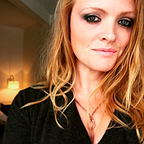The 5 fears that kill innovative education (and 5 ways to overcome them)
Every school wants to be innovative. But what does that really mean? Innovation is contextual bound, to our learners, our teachers, our resources, our parent community and mostly, in all of our readiness and willingness for change.
So what do we do to be ready and willing? As educators we start with ourselves and reflect if we are caught in attitudes or attributes that are killing innovation in our practice, our schools, and our lives.
Fear of change. Our early human brains were programmed to seek consistency in food sources, shelter and community. We resist change because it poses a threat to our survival. But a modern fear of change can lead to a closed mindset in which we fail to innovate. Teaching is hard, demanding, and has long hours. It is a craft in which we possess less social capital than other professions, and yet are still under a lot of pressure to be successful. I get it, a change that leads to failure can reduce that power and increase criticism. However, no matter what stage you’re at in your educational journey you’ll have to find ways to embrace and harness innovation and advancement because the only constant is change.
Ask yourself: What about this change is an opportunity?
Fear of failure. Remember that super cheesy thing that went around at conferences awhile ago? FAIL: First Attempt In Learning? We’ve told kids failure is good, and necessary, and productive. However, for some reason as a coach in schools I often hear Educators state that failure is a threat to job security, to collegial status, school power, and parent relationships. Those fears are valid, especially if a school culture doesn’t model and support innovation forward failure. However, fear of failure is also based in ego. If we fail, we believe that all those who doubted us will have been right. Instead, reflect on two things, What areas of possibility might this open? And if you do fail, what’s the worst that can happen? With a calculated risk, you have strategized each step of the way. You move incrementally toward your goal, carefully assessing where you are at. Calculated risks are key to every success. Reframe the possibility of failure as the opportunity to try something new. After all, aren’t we supposed to model the behaviour we want to see in our learners.
Ask yourself: What was one new thing you did this year and how did you share that learning with your school community?
Fear of the unknown. There is a common misconception that the unknown is equal to losing control and being unable to manage potential outcomes. It may sound silly, but you don’t know what you don’t know. We all have gaps in our knowledge, or blind spots in our educational acumen. That is why we develop strong networks of people to collaborate with. Welcome to the 21st Century, yo. You don’t have to know everything, but you do need to be connected and passionate to tap into the resources around you. Allowing ourselves to take a massive leap into the unknown is liberating for education, innovation and life. And really, your unknown is not everyone’s unknown. When educational leaders de-silo practice and network learning they suddenly realize that the fear of the unknown is really about the fear of coming to terms with our fragility around constructing assumptions and misconceptions. We cling to those belief structures because as we read in point one: change is scary.
Ask Yourself: Who is in my network? How diverse and interdisciplinary are my connections?
Fear of discomfort. Educators push students into uncomfortable learning experiences every day, because we know right at the edge of the discomfort zone great learning happens. However, many educational leaders and teachers play their own learning journey safe. With practice we can become comfortable pushing ourselves outside our comfort zones. But it won’t happen without getting into the right mindset and prepping to take on this challenge. This means engaging in meaningful dialogue with all constituents in our communities. Listening to disparate ideas leads to great innovation.
Ask yourself: Who have I listened to today? What have I learned that challenged my beliefs and values?
Fear of losing power. We live in an era where distributed models of leadership abound, and current organizational structures are being examined as flawed. As educators we want the best for our learners, we want to ensure an amazing planet for them, we want to help them be incredible leaders, we want them to have strong networks and powerful communities. Power and control in schools are the number one killer of innovation.
Ask yourself: Does power reside in the ability to make decisions, in holding titles, or a corner office? Or is power in having a community supportive of your ideas?
So how do Educators mitigate the fear that stops innovation?
1. Get to know yourself. Name your fear. Name your assumptions.
2. Get to know others. Give voice and value to the wisdom of people and celebrate the power of context.
3. Build systems. Design time to celebrate failure, to recognize innovation, to assess equity, to encourage interdisciplinary collaboration, to reflect on self, to breath joy, and to imagine, dream and play.
4. Make learning public. What goals are you working on? Post your journey both digital and analogue for your community to see the ways in which you work through challenges.
5. Be vulnerable. Say those three little words that mean the most, I don’t know. They are liberating. As a educator ask yourself what you can learn from each person around you. Not what you want to gain or give to them… but what is the knowledge and wisdom that each individual holds.
My educational leadership philosophy is based in a paradigm of hope, an agenda of equity, and a celebration of the unknown. Tell me more about your journey in the comments.
